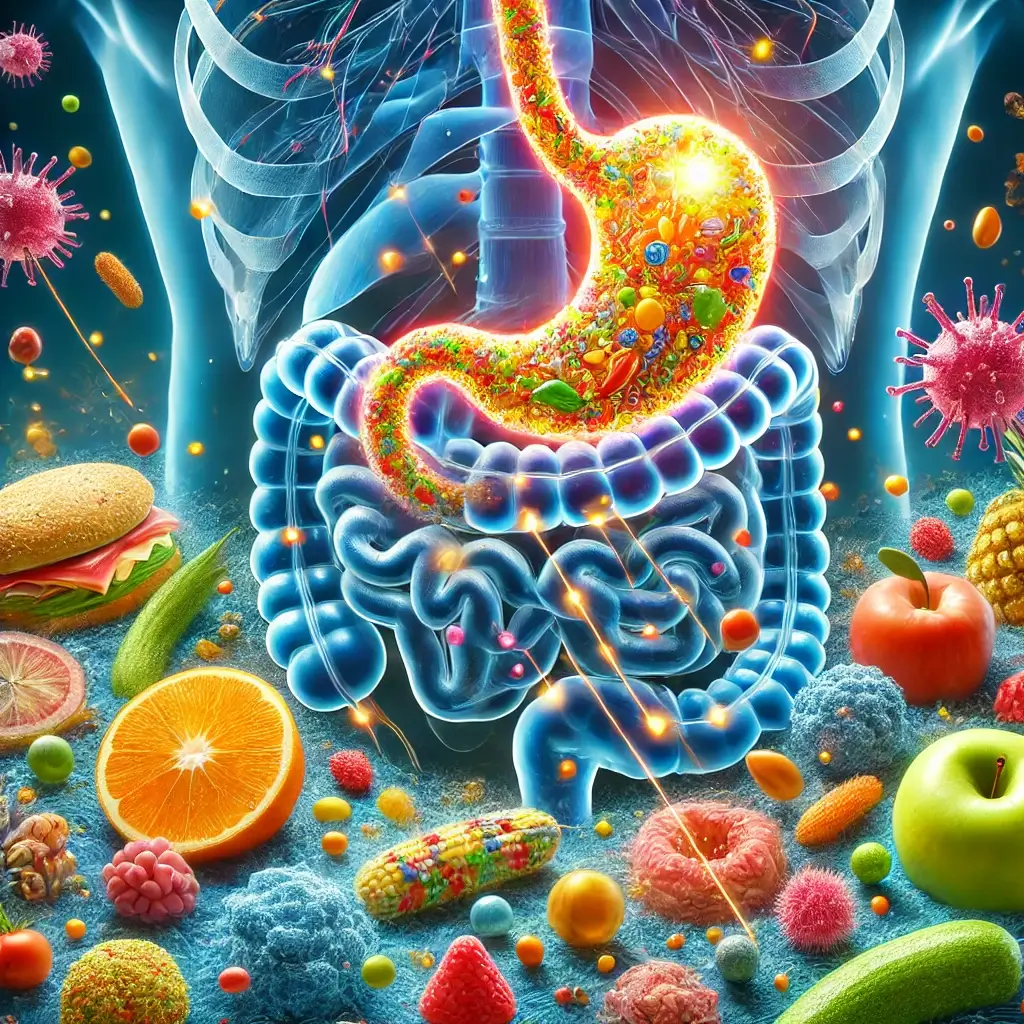Understanding the Human Body’s Complex System
The human body operates as a finely tuned system, relying on harmony among its many parts to maintain health. Among the most intricate relationships in this system is the interplay between gut health and the immune system. Our gut, home to trillions of microorganisms collectively known as the gut microbiome, plays a vital role in immune regulation. Disruptions in this delicate ecosystem have been linked to a range of autoimmune diseases, where the immune system mistakenly attacks healthy tissues.
The Impact of Autoimmune Diseases
Autoimmune diseases, including rheumatoid arthritis (RA), lupus, and type 1 diabetes, affect millions worldwide and impose significant personal and societal burdens. Researchers are now focusing on the gut microbiome’s influence on autoimmune diseases as a critical piece of the autoimmune puzzle. By understanding how gut bacteria interact with immune cells and modulate inflammation, we can uncover novel pathways to manage or even prevent these diseases. The gut-immune axis, often described as a microbial symphony, highlights the intricate dance between microbes and immunity that keeps us healthy.
The Science Behind the Gut-Immune Connection
The gut microbiome forms a complex and dynamic ecosystem that interacts with the immune system in profound ways. Key mechanisms include:
The Gut Barrier: The intestinal lining serves as a physical and chemical barrier, allowing nutrients to pass while preventing harmful pathogens from entering the bloodstream. Disruptions in this barrier, known as “leaky gut syndrome”, have been implicated in autoimmune diseases such as RA and inflammatory bowel disease (IBD).
Immune Education: Gut bacteria “train” immune cells to distinguish between self and non-self. A diverse microbiome promotes immune tolerance, reducing the risk of autoimmune reactions.
Inflammation Control: The microbiome helps regulate inflammation, a hallmark of autoimmune diseases. Dysbiosis, or an imbalance in gut bacteria, can lead to chronic inflammation, exacerbating conditions like lupus and type 1 diabetes.
Research Findings on Gut Health and Autoimmunity
The connection between gut health and autoimmune diseases is supported by a growing body of research. Below are key studies illustrating this relationship:
Rheumatoid Arthritis and gut microbiome correlation: A 2020 study published in Nature Immunology identified specific bacterial strains in the gut microbiome of RA patients that correlated with increased disease activity. These findings suggest that gut microbiota composition can influence joint inflammation and immune responses.
Type 1 Diabetes and gut bacteria modulation: Research in Cell (2017) demonstrated that certain gut bacteria modulate immune activity in mice predisposed to type 1 diabetes. By altering microbiota composition, researchers could reduce disease incidence, providing insights into the potential role of probiotics and diet in disease prevention.
Multiple Sclerosis and gut-brain-immune connection: A 2021 study in Lancet Neurology explored the gut-brain-immune connection, showing that MS patients had significantly lower levels of bacteria associated with anti-inflammatory effects. Clinical trials are investigating microbiome-based interventions to mitigate disease progression.
Inflammatory Bowel Disease and gut dysbiosis: A meta-analysis in Gastroenterology (2022) revealed that gut dysbiosis often precedes IBD onset, suggesting a causal relationship. Advances in microbiome sequencing allow early detection and personalized therapeutic strategies for IBD patients.
Practical Ways to Support Your Gut Health
Maintaining a healthy gut is an essential step toward reducing the risk of autoimmune diseases. Here are actionable tips supported by scientific evidence:
Adopt a Fiber-Rich Diet: Fiber feeds beneficial gut bacteria, fostering diversity and resilience in the microbiome. Incorporate whole grains, fruits, and vegetables.
Include Fermented Foods in Daily Diet: Foods like yogurt, kefir, kimchi, and sauerkraut contain live probiotics that enhance gut health and support immune balance.
Experiment with Prebiotic Foods: Prebiotics, found in onions, garlic, and bananas, nourish gut bacteria and promote their growth. Prebiotic supplements may also be beneficial but should be used under medical guidance.
Manage Stress Levels: Chronic stress disrupts gut microbiota and contributes to inflammation. Practices such as yoga, meditation, and deep breathing can alleviate stress-related impacts.
Ensure Adequate Sleep Quality: Quality sleep is critical for maintaining a balanced gut microbiome. Aim for 7-8 hours per night.
Final Thoughts on Gut Health and Autoimmunity
The intricate relationship between gut health and autoimmune diseases reflects the importance of a balanced microbiome in maintaining overall health. While direct causality between gut bacteria and autoimmune conditions is still under investigation, the evidence suggests that nurturing gut health can support immune tolerance and reduce inflammation. Through dietary changes, stress management, and lifestyle modifications, we can proactively improve gut health and potentially mitigate the risk of autoimmune diseases.
As research continues to unravel the complexities of the gut-immune axis, the future holds promise for innovative, microbiome-focused treatments. For now, adopting gut-friendly habits can serve as a foundation for both disease prevention and enhanced well-being. Always consult a healthcare professional for personalized advice on managing autoimmune conditions or improving gut health.
References
Scher, J. U., et al. (2020). “The role of the gut microbiome in rheumatoid arthritis.” Nature Immunology.
Vatanen, T., et al. (2017). “The influence of gut microbiota on type 1 diabetes development.” Cell.
Berer, K., et al. (2021). “Gut microbiome in multiple sclerosis patients.” Lancet Neurology.
Ungaro, R., et al. (2022). “Advances in gut microbiome research and IBD.” Gastroenterology.
